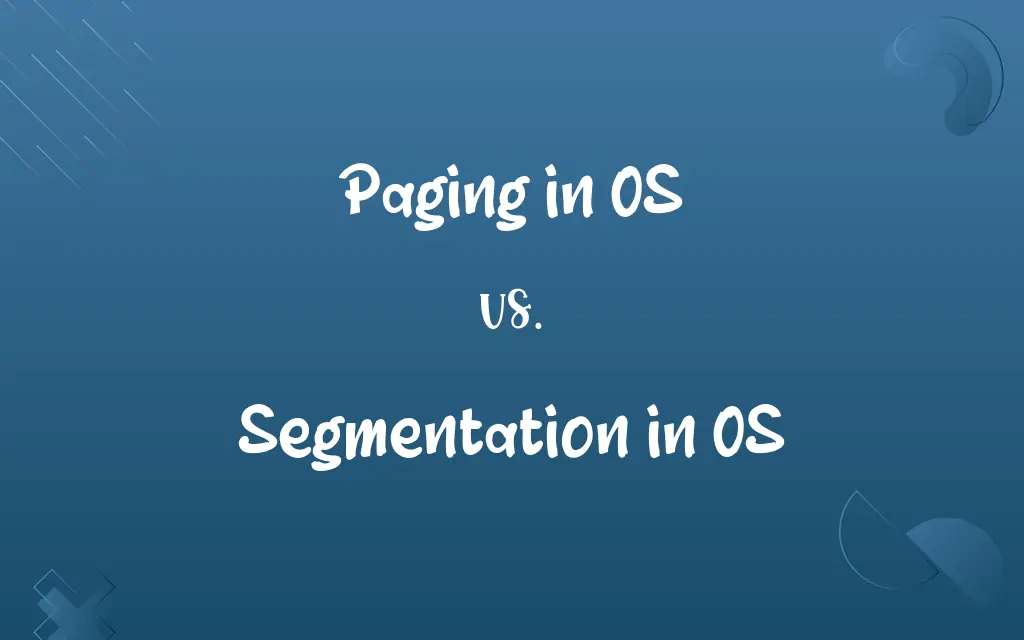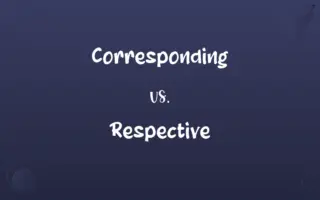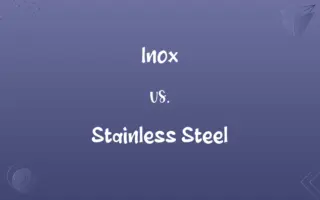Paging in OS vs. Segmentation in OS: Know the Difference

By Hifza Nasir & Dua Fatima || Published on March 7, 2024
Paging in OS divides memory into fixed-size blocks called pages to manage memory allocation, whereas segmentation divides memory into variable-sized segments based on logical divisions, reflecting program's structure.

Key Differences
Paging is a memory management scheme that eliminates the need for contiguous memory allocation by dividing the process's memory into fixed-size units called pages. This approach simplifies memory allocation and effectively handles fragmentation by allowing pages to be stored non-contiguously. Conversely, segmentation divides the process's memory into variable-sized units known as segments, which are logical divisions of the program such as functions, arrays, or data structures, facilitating more natural memory access patterns aligned with program structure.
Dua Fatima
Mar 07, 2024
In paging, the logical address space is divided into equal-sized pages, while the physical memory is divided into frames of the same size, making memory management more uniform. Segmentation, on the other hand, allows segments to vary in size, aligning memory allocation with the logical structure of the programs, potentially reducing wasted space due to internal fragmentation seen in paging.
Hifza Nasir
Mar 07, 2024
Paging abstracts the memory access process for programs, making the physical location of memory blocks transparent to the process. This abstraction simplifies programming and memory management but does not reflect the logical structure of the program. In segmentation, memory management is closely aligned with the program’s logical structure, making it easier for programmers to manage data and code but complicating memory management with the possibility of external fragmentation.
Dua Fatima
Mar 07, 2024
Paging treats all memory uniformly and is primarily concerned with the efficient and flexible allocation of memory, segmentation provides a more nuanced approach by acknowledging the different types of data and code a program uses. This distinction allows segmentation to offer protection and sharing mechanisms at a more granular level, assigning different attributes to different segments (e.g., read-only, execute).
Hifza Nasir
Mar 07, 2024
The choice between paging and segmentation often depends on the specific needs of the operating system and the applications it runs. Modern operating systems frequently employ a combination of both, using paging for efficient memory allocation and management, while also supporting segmentation for those applications that benefit from a logically structured memory layout.
Dua Fatima
Mar 07, 2024
ADVERTISEMENT
Comparison Chart
Memory Allocation
Simplified, as pages fit in any frame
Based on logical program divisions
Hifza Nasir
Mar 07, 2024
Fragmentation
Minimizes external fragmentation
Can lead to external fragmentation
Dua Fatima
Mar 07, 2024
Logical Structure
Does not reflect program structure
Reflects program's logical structure
Hifza Nasir
Mar 07, 2024
Management Complexity
Lower, due to uniform page size
Higher, due to variable segment sizes
Hifza Nasir
Mar 07, 2024
ADVERTISEMENT
Protection & Sharing
Applied uniformly across pages
Can be tailored to each segment
Shumaila Saeed
Mar 07, 2024
Paging in OS and Segmentation in OS Definitions
Paging in OS
Simplifies memory management by avoiding external fragmentation.
Any free frame can be allocated to a process.
Hifza Nasir
Feb 26, 2024
Segmentation in OS
Divides memory into variable-sized segments based on logical divisions.
Code, data, and stack segments.
Dua Fatima
Feb 26, 2024
Paging in OS
Provides uniform protection across memory.
Page-level access controls.
Dua Fatima
Feb 26, 2024
ADVERTISEMENT
Segmentation in OS
Enables fine-grained protection and sharing.
Read-only code segments, writable data segments.
Hifza Nasir
Feb 26, 2024
Paging in OS
Facilitates non-contiguous memory allocation.
Page tables map virtual to physical addresses.
Hifza Nasir
Feb 26, 2024
Segmentation in OS
Can lead to external fragmentation due to variable sizes.
Gaps between segments.
Hifza Nasir
Feb 26, 2024
Paging in OS
Divides memory into fixed-size blocks called pages.
4KB pages in a virtual memory system.
Dua Fatima
Feb 26, 2024
Segmentation in OS
Uses segment tables for address translation.
A segment number and offset locate data.
Hifza Nasir
Feb 26, 2024
Paging in OS
Uses page tables for address translation.
A page number and offset determine physical address.
Shumaila Saeed
Feb 26, 2024
Segmentation in OS
Allows for memory allocation that mirrors program structure.
Separate segments for functions, arrays.
Dua Fatima
Feb 26, 2024
Repeatedly Asked Queries
How do paging and segmentation differ in handling memory?
Paging divides memory into fixed-size units without regard to the program structure, while segmentation divides memory into variable-sized units that reflect the logical structure of programs.
Dua Fatima
Mar 07, 2024
Can paging and segmentation be used together?
Yes, some operating systems use a combination of both techniques to leverage the benefits of each, such as efficient memory management and logical memory organization.
Hifza Nasir
Mar 07, 2024
How does paging simplify memory management?
Paging simplifies memory management by treating all memory uniformly as pages, which can be easily managed and allocated without concern for contiguous space.
Hifza Nasir
Mar 07, 2024
Why might a program benefit from segmentation?
A program might benefit from segmentation if it requires memory access patterns that align with its logical structure, such as separate segments for different types of data or code.
Shumaila Saeed
Mar 07, 2024
How do operating systems choose between paging and segmentation?
The choice depends on the OS's goals for memory management, efficiency, and support for program structures, with many opting for a hybrid approach to combine the benefits of both.
Hifza Nasir
Mar 07, 2024
What is paging in an OS?
Paging is a memory management technique that divides memory into fixed-size blocks, or pages, to facilitate non-contiguous allocation and efficient use of memory.
Dua Fatima
Mar 07, 2024
What is segmentation in an OS?
Segmentation is a memory management scheme where memory is divided into variable-sized segments based on logical divisions of a program, such as code and data sections.
Hifza Nasir
Mar 07, 2024
In what scenarios might segmentation be preferred over paging?
Segmentation might be preferred in scenarios where programs have distinct logical sections that benefit from being separately managed and accessed, such as differentiating between code and data.
Dua Fatima
Mar 07, 2024
What is external fragmentation, and how do paging and segmentation address it?
External fragmentation occurs when free memory is split into small blocks not usable by programs. Paging effectively eliminates external fragmentation by allowing any free page to be allocated, while segmentation can lead to external fragmentation due to variable segment sizes.
Hifza Nasir
Mar 07, 2024
How do segmentation and paging affect program performance?
Both can impact program performance through their memory management efficiency and the overhead of address translation, with paging generally offering more predictable performance due to fixed-size allocation.
Dua Fatima
Mar 07, 2024
What are the protection and sharing differences between paging and segmentation?
Paging applies protection uniformly across all pages, while segmentation allows for more granular control by setting different protection levels for each segment, reflecting their specific needs.
Hifza Nasir
Mar 07, 2024
What role do page tables play in paging?
Page tables play a crucial role in paging by mapping virtual addresses to physical addresses, facilitating the translation process during memory access.
Hifza Nasir
Mar 07, 2024
What are the challenges in implementing segmentation?
Implementing segmentation presents challenges like handling variable segment sizes, which can lead to external fragmentation, and the complexity of managing a segment table for address translation.
Dua Fatima
Mar 07, 2024
Can a system without paging or segmentation effectively manage memory?
While possible, it would be less efficient and flexible in managing memory, potentially leading to issues like fragmentation and difficulty in supporting modern multitasking and memory-intensive applications.
Hifza Nasir
Mar 07, 2024
How does paging address the issue of memory fragmentation?
Paging addresses memory fragmentation by allowing memory to be allocated in fixed-size blocks, making it easier to utilize all available memory without leaving unusable gaps.
Hifza Nasir
Mar 07, 2024
Share this page
Link for your blog / website
HTML
Link to share via messenger
About Author
Written by
Hifza NasirCo-written by
Dua Fatima


































































